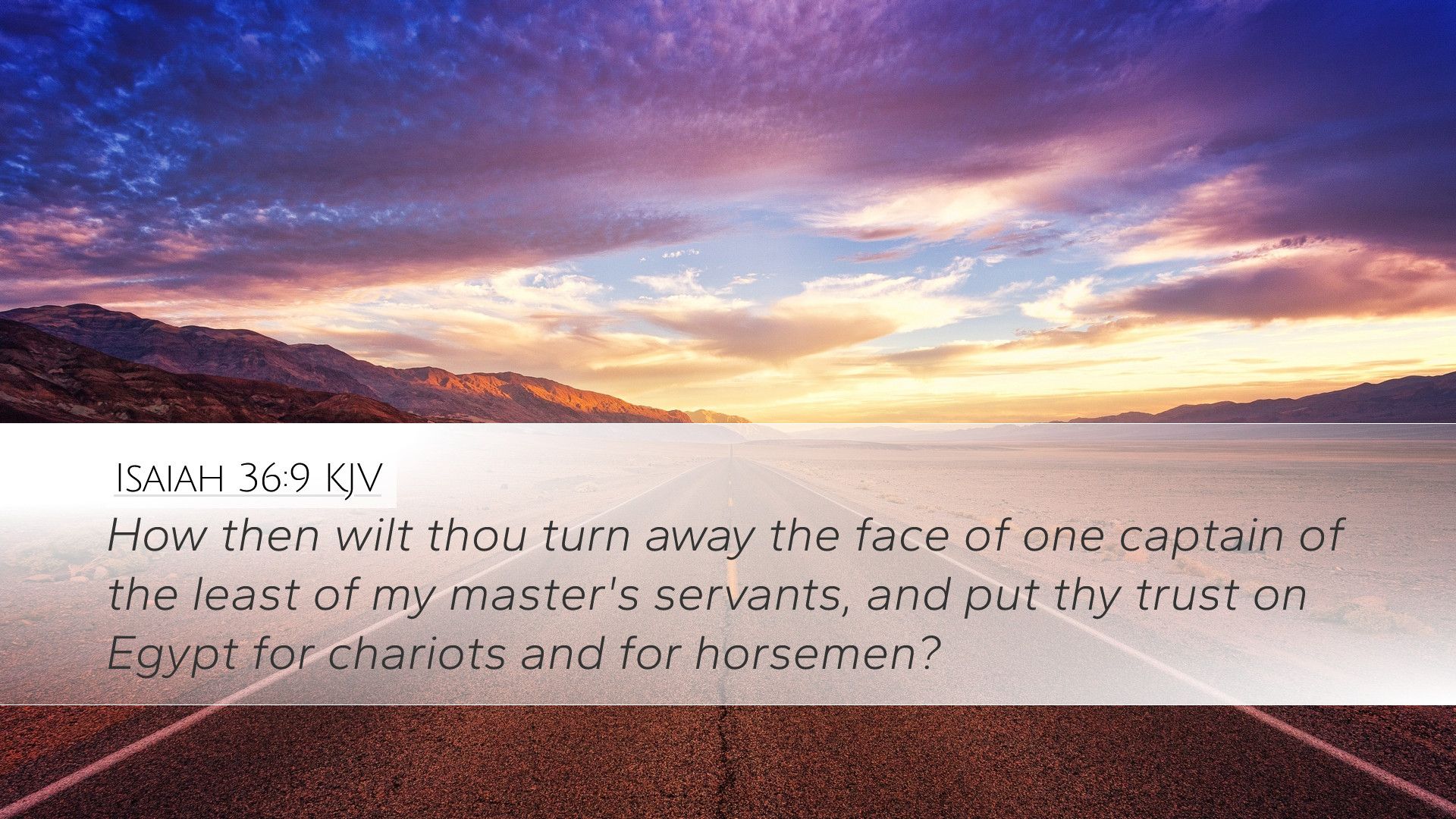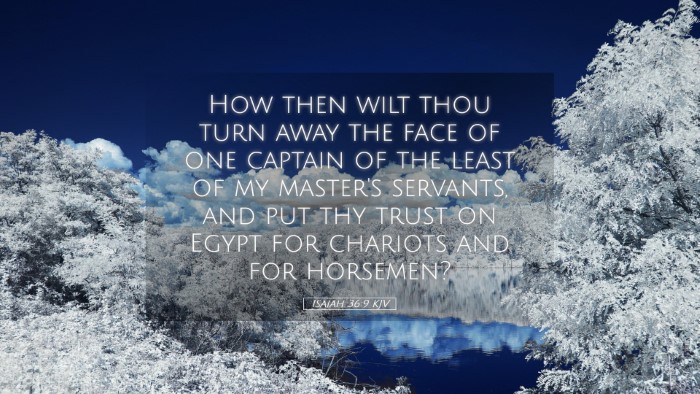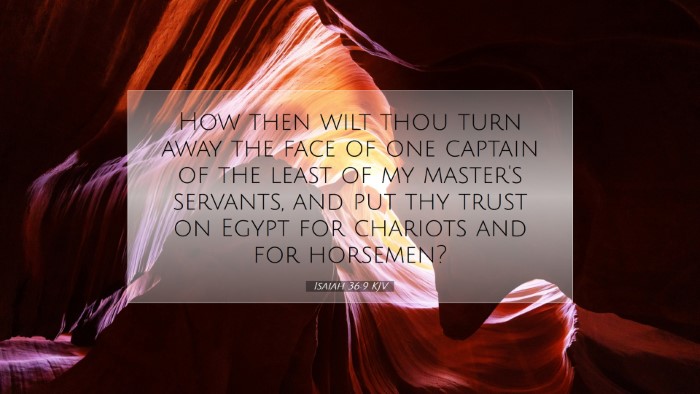Commentary on Isaiah 36:9
Verse: Isaiah 36:9 - "How then will you repulse a single captain among the least of my master’s servants, and rely on Egypt for chariots and for horsemen?”
Overview
This verse occurs in the context of a confrontation between the Assyrian King Sennacherib's emissaries and the people of Judah. The verse illustrates the larger theological and socio-political narrative in which God's sovereignty over nations is revealed, particularly in contrast to human reliance on military might and foreign alliances.
The Context of the Verse
In Isaiah 36, the Assyrian forces lay siege to Jerusalem, and their representative, Rabshakeh, taunts the people of Judah, attempting to incite fear and doubt in God’s protective power. This verse serves as a pivotal moment within that confrontation, highlighting issues of trust and reliance.
Exegesis and Commentaries
Matthew Henry's Commentary:
- Trust in human strength: Matthew Henry emphasizes that the challenge posed by Rabshakeh encapsulates the folly of relying on human strength and alliances—symbolized by Egypt, which had historically been an unreliable ally for Israel.
- Spiritual warfare: He notes that this conversation is not merely geopolitical but illustrates a deeper spiritual warfare, where trust in God is contrasted against the tangible fear invoked by a powerful adversary.
Albert Barnes' Exposition:
- Captains and Least Servants: Barnes explains that the reference to a "single captain" signifies that Rabshakeh equates the strength of Judah’s resistance to a minor force within the much greater Assyrian army, attempting to demoralize them.
- Reliance on Egypt: He further elucidates that reliance on Egypt symbolizes an abandonment of faith in God, suggesting that such reliance would ultimately lead to downfall. Egypt is portrayed as a weak and unreliable power, incapable of supplying the needed help in times of dire conflict.
Adam Clarke's Commentary:
- Meaning of the "captain": Clarke explicates the Hebrew terms, noting that a "captain" signifies a commander of troops and emphasizes the insignificance of Judah's defenses against the formidable Assyrian army.
- Cultural Context: Moreover, he highlights the cultural context in which Rabshakeh presents a rhetorical question designed to instill fear, reflecting a common tactic of ancient warfare where the psychological aspect was as vital as physical might.
Theological Implications
This verse compels theologians and scholars to wrestle with themes of trust and vulnerability. The dependence on foreign nations for security over faith in God's power is a recurrent theme in scripture, prompting analysis of modern parallels in the life of the Church and individual believer.
Practical Applications
For Pastors: This verse may be used to caution congregations against misplaced trust in contemporary "Egypts"—support systems that ultimately cannot deliver spiritual or physical salvation.
For Students and Scholars: It encourages investigation into the historical context of the Assyrian siege of Jerusalem and the broader narrative of trust in Yahweh throughout the Old Testament.
Conclusion
Isaiah 36:9 serves as a profound reminder of the nature of faith in the face of overwhelming odds. Through the insights provided by noted commentaries, it encourages believers to reflect on whom they truly trust in times of trouble. The verse challenges theological perspectives on reliance, urging a return to fundamental themes of faith and divine reliance amidst earthly powers.


